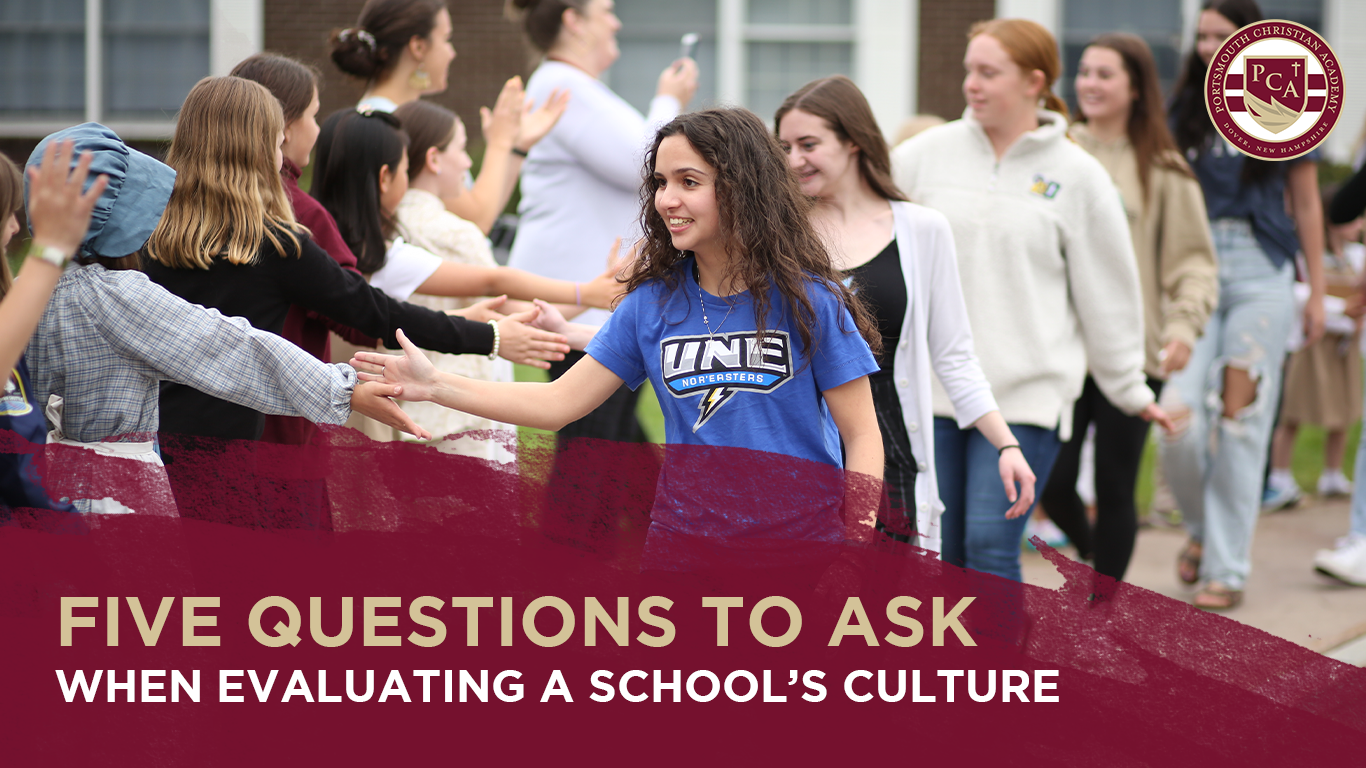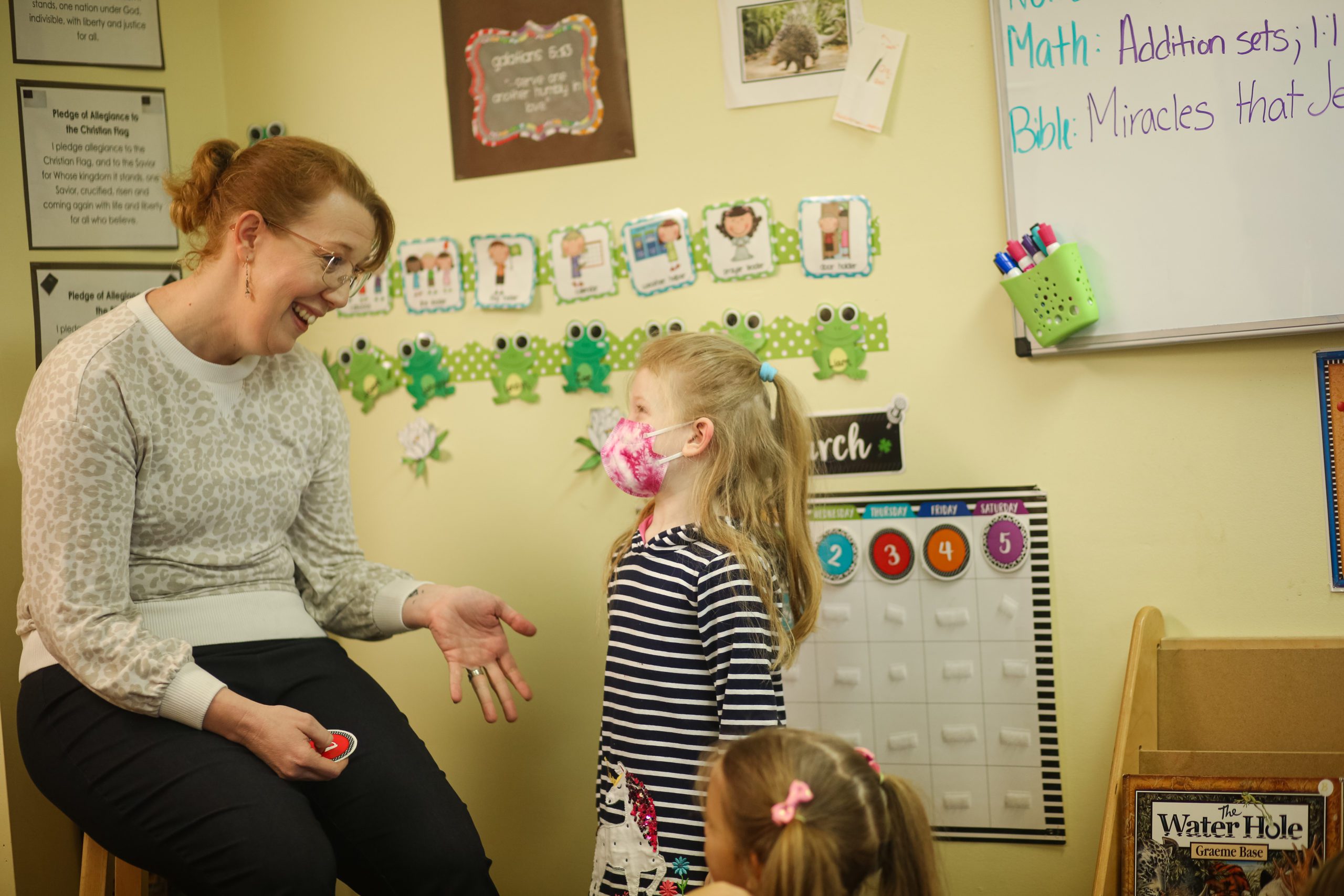5 Questions to Ask When Evaluating School Community Culture
We all know the saying, “it takes a village to raise a child.” While strong academics and social opportunities are obvious measures of a school’s success, in an era that follows constant social distancing and remote learning, it’s more important than ever to also make sure each child is receiving the support and nurture they need from their school community.

Schooling looked different for many families during Covid. Because of this, it’s helpful to assess whether your child’s learning environment is one that cultivates the positive community culture your child needs to thrive. Here are a few questions to consider when looking for the right community for your child’s schooling this upcoming year.
1. Is there a clear, shared goal and vision within the school?
Whether it be parents, teachers, or administrators, it’s critical for a community to work toward a collective vision. That collective vision is the bond that each member shares as they choose to become a part of the school, and it drives how each of the school’s sub-communities operate within the broader community. Is the vision clearly communicated? Do you see evidence of it on their Web site, within the halls, in their communications, in their actions?
To enable a school community and its families to flourish, it takes a collaborative effort to implement the school’s core values. Do you see helping hands across the entire community…from students to teachers to parent volunteers? Do you see a curriculum and programming that supports the school’s vision? Do you see alumni who reflect the school’s mission? Sharing a common mission as a community is what allows a school’s vision to be carried out.


PCA’s mission is to honor God joyfully by inspiring students to maximize their God-given potential. Through this, we work toward our vision of developing Christ-centered graduates to impact the world for good. We’ve been blessed to see the commitment of our staff, faculty, and parents toward enabling us to build upon these goals.
2. Are there strong relationships being built in the community?
The connections within a school are a vital part of understanding the health of its community culture. Are teachers connected with their students? Is administration communicating with parents? Are coaches edifying student-athletes? Are there opportunities for families to connect with each other? Connections across groups in the school play an important role in building up its community culture. When teachers connect with families, they can better nurture and build relationships with their students. When teachers and school administration collaborate, they can work together to advance what they are doing to maximize each child’s potential.


3. Do school leaders encourage the school to continue improving?
Stagnation is the death of progress and momentum. Growth is key to building a healthy school community. Are the school’s leaders asking how they can better serve the community? Is the school actively engaged in strategic planning for the school’s future? Does the school solicit feedback from parents and students? Having leaders who encourage improvement not only builds up the support for its families but also improves the quality of the education while fostering a growth mindset in teachers as well as students.


Portsmouth Christian Academy strives to instill its core values with intention in day-to-day activities and community events.
- Christ-Centeredness: A world view that embraces Christ as over all and in all
- Biblical Integrity: Actions and attitudes consistent with biblical teaching
- Compassionate Community: Service and love in action
- Curiosity: Awe, wonder, and exploration of God’s Word and His world
- Excellence: Discipline to pursue constant improvement
- Humility: Recognition of who we are in relation to Christ and others
- Joy: Delight in God
4. What are the values that the school’s culture is being built on?
Understanding a school’s core values can contribute to understanding what principles are emphasized within your child’s school day. How will your child be taught to conduct himself, treat others, and establish his own boundaries and expectations on how he will be treated? What are the majority of online reviews saying about the school’s culture? What sort of conduct do you witness when you watch the school’s videos or visit the campus? Are you able to see examples of a school’s values played out? If a school is truly working to inculcate their values in the community, it should come through in the everyday atmosphere.


5. How has the school’s community culture impacted its students?
Finally, a great way to see how a school community might impact your child is looking at how it’s shaped its current students and alumni. Seeing positive growth in individuals as a result of the support they’ve received is encouraging for a school. Hearing from these students a great way to get a sense of the type of young men and women that are developed as a result of that community. Are there testimonials from students and alumni that you can review? Does the school have student ambassadors you can meet?
At PCA, we’re grateful for how our students have opened up to share how their experience in the school’s community has impacted them. In the video below, you’ll hear from a few of our Spring Musical actresses who spoke about how the PCA community provides a welcoming environment for them to share their talents on stage. You’ll even hear from one of our athletes, who shared how the supportive student body at PCA allowed him to make the jump from lighting it up on the basketball court to performing on the stage.


